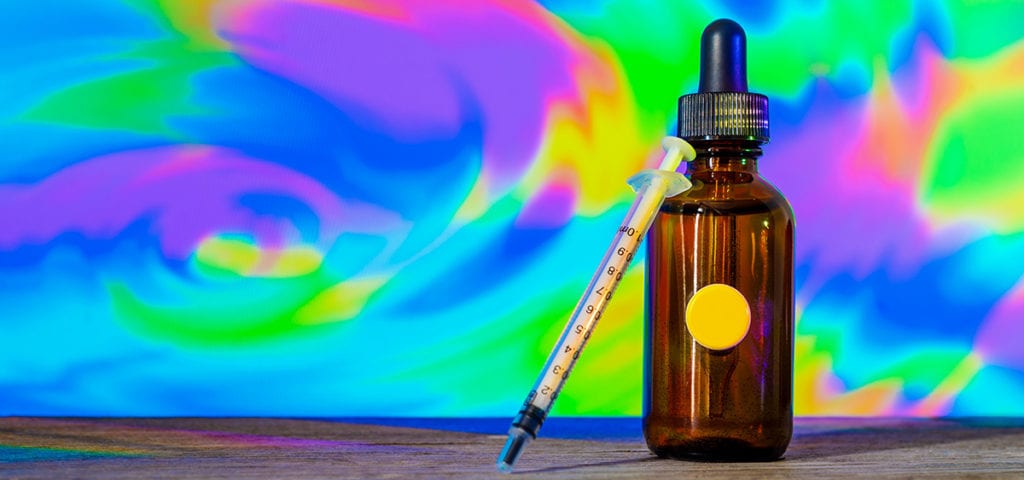Researchers at UC Davis say they have developed an analog of LSD named JRT that encourages neuroplasticity without psychedelic side effects, and could be an effective treatment for schizophrenia.
Researchers Say LSD Analog Has Potential to Treat Schizophrenia

Conceptual image of a bottle of diluted LSD used for microdosing
Full story continued below.
Advertisement
University of California, Davis researchers say they have developed a drug from LSD that promotes neuroplasticity and could be an effective schizophrenia treatment.
The researchers created the drug, called JRT, by switching two atoms in the molecular structure of LSD — essentially “a tire rotation,” according to co-author David E. Olson, director of the Institute for Psychedelics and Neurotherapeutics and a professor of chemistry, biochemistry, and molecular medicine at UC Davis.
“By just transposing two atoms in LSD, we significantly improved JRT’s selectivity profile and reduced its hallucinogenic potential,” Olson said in a UC Davis report. The result was a drug that encourages neural plasticity, which is the brain’s ability to change and adapt through life experience, without any of the psychedelic side effects associated with LSD.
Crucially, the researchers found JRT did not promote gene expression commonly associated with schizophrenia, which can be amplified by the use of LSD.
“No one really wants to give a hallucinogenic molecule like LSD to a patient with schizophrenia. The development of JRT emphasizes that we can use psychedelics like LSD as starting points to make better medicines. We may be able to create medications that can be used in patient populations where psychedelic use is precluded.” — Olson, in the report
The researchers also noted that JRT is an effective antidepressant that is about a hundred times more potent than ketamine.
The research was funded by grants from the National Institutes of health, the UC Davis Provost’s Undergraduate Fellowship, the Camille and Henry Dreyfus Foundation, the Dr. Mohsen Najafi Research Award in Medicinal Chemistry, the Boone Family Foundation, Hope for Depression Research Foundation, the Pritzker Neuropsychiatric Disorders Research Consortium, the L.I.F.E. Foundation, the Chan-Zuckerberg Initiative Imaging Scientist Award, and a National Science Foundation NeuroNex Award.
Get daily news insights in your inbox. Subscribe
End